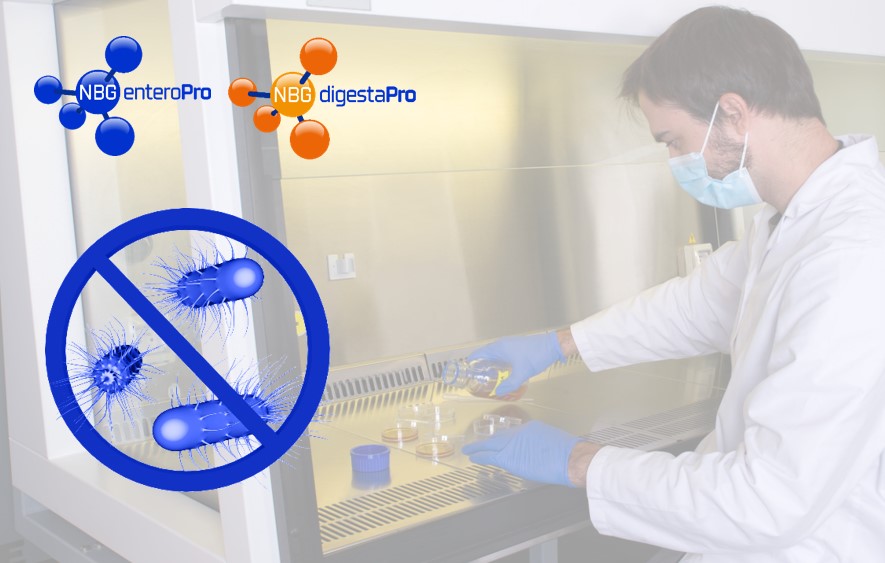Antimicrobial peptides obtained by specific enzymatic hydrolysis

Dear colleagues,
This week we would like to address the interesting topic of antimicrobial peptides.
Antimicrobial peptides are an attractive natural alternative to antibiotics due to their physicochemical properties, their activity against a broad spectrum of bacteria and the low level of resistance they cause.
Another common characteristic of antimicrobial peptides is their resistance to heat, a quality that makes them very interesting for use in animal feed.
At NBG we are working on obtaining antimicrobial peptides, with the specific NBG Enzygoal hydrolysis technology.
Specifically, we are working on Sardinella Aurita tissues, from which if the correct hydrolysis is applied it is possible to obtain peptides with antimicrobial potential as peptides with hydrophobic sequences as LVHYAGTVDYN, peptides with NPK sequences as LRVAPEEHPTLLLLTEAPLNPK or peptides with GPR sequences as GPRGLPGSPGNIGPAG.
Finally, we attach an interesting article showing the mode of action of antimicrobial peptides that affect the bacterial membrane versus antimicrobial peptides that intervene by modifying intracellular mechanisms.
Enjoy the article!

